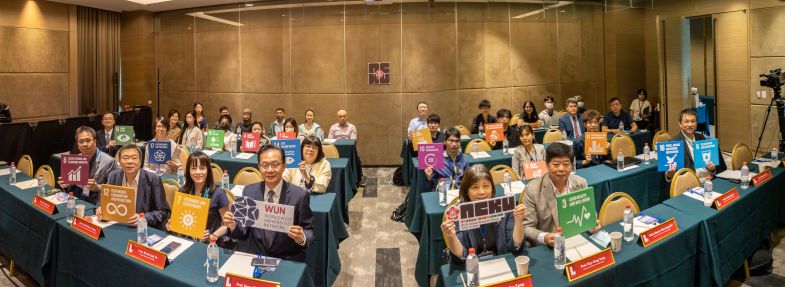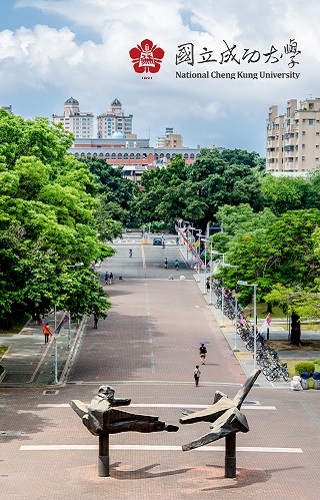
Following the UN’s SDGs goal, National Cheng Kung University’s Global Research group called for researchers, to discuss how progress on the goals could be implemented in Asia.
National Cheng Kung University (NCKU) organized researchers around the world, in particular focusing on the issues in Asia, holding the “Pathways to Progress: Achieving the SDGs in Asia” conference on Nov. 28th, Zenda Suites, participants had been making efforts to discuss how progress on the United Nations’ sustainable goals (SDGs) could be accelerated in Asia.
This year, NCKU’s WUN Global Research Group-SDGs in Asia funded 15 projects, allowing researchers to work towards the 17 goals and connecting 31 institutes and 71 researchers across five continents.
On behalf of NCKU, the Vice President and the Vice President for International Affairs, Hong-Chen Chen, said that the SDGs in Asia program is not only to realize the benefits and the impacts of SDGs but also provide an opportunity to exchange ideas and share experiences; furthermore, to fulfill the university’s social responsibility.
Also, Prof. Tsair-Fuh Lin, the chair of the WUN Global Research Group-SDGs in Asia, participated remotely from Bangkok and welcomed each one who joined the conference, sending gratitude for every researcher’s efforts and sharing. Then he introduced the one-day conference, which would include water quality and treatment, sustainable construction, energy storage control systems, public health, and climate change education, tackling the SDGs.
Research findings shared by Taiwanese academics and their international colleagues showed some interesting discussions during the day-long event.
The first session addressed the environmental issues, from disaster self-reliance to climate change education. As the interviewee during the break, Prof. Yung-Nane Yang from the Department of Political Science at NCKU. He brought up that by recalling historical disasters; people shall know the importance of sustainable communities. Moreover, he recommended that self-reliance initiatives be taught to the younger generation and encouraged the public to join disaster prevention.
The second session discussed SDG 3: Good Health and Well-Being. With the big data, Asso. Prof. Chung-Ying Lin from the Institute of Allied Health Science at NCKU, analyzed the excessive online usage, such as social media, online shopping, and gaming, and those of the behavioral addictions that would cause health problems.
Apramita Devi, a postdoctoral researcher at the University of California, Davis has been working with Helen Chappell from the University of Leeds and the chair of SDGs in Asia, Prof. Lin from NCKU, who represented the team described that to create “smart crops” of millets can contribute towards a diet that’s rich in micronutrients, are drought-resistant, gluten-free and more climate resilient.
The last session of the conference focused on sustainable aquaculture, which tackled SDG 6: clean water and sanitation. From wastewater treatment to compare the water quality from different Asian countries.
Assoc. Prof. Hsin-Tien Lin from the Department of Environmental Engineering at NCKU took the fast-food industry, such as Starbucks, Mcdonald, etc., for example, sharing her ideas about promoting reusable containers for reducing environmental impacts.
As the conclusion of the conference, Prof. Lin, chair of the SDGs in Asia, expressed his gratitude online again from Bangkok to all the researchers and staff members, allowing the whole year program to come to an end. Prof. Lin emphasized that the key to achieving SDG must include establishing global partnerships within academia, government, and industry, even collecting relevant information in a shared SDG database hub.
Through the AI technique, Prof. Lin prepared a video in Mandarin that had been transferred into English, saying the SDGs in Asia offer researchers a platform to publish research results and increase their visibility and impact, strengthening links with member universities.
In brief, the two years of the SDGs in Asia program set a sustainability milestone and showed the feasibility of cross-country and cross-disciplinary teamwork.
Find out more about the WUN Research Global Group – SDGs in Asia.














